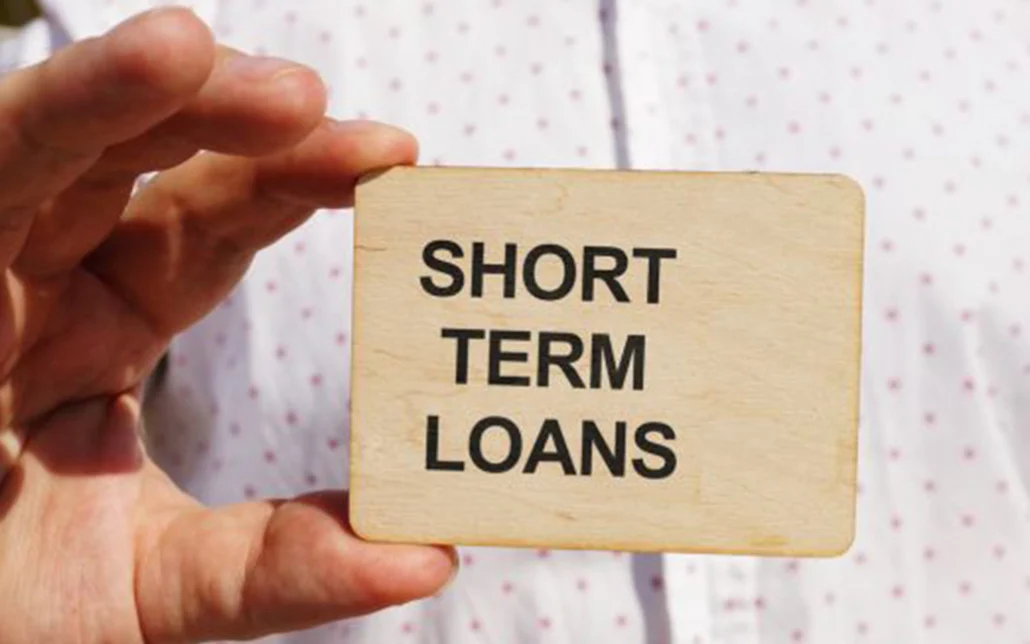How To Choose The Right Loan Term for You
Last updated on October 30th, 2024 at 02:05 pm
When considering loan terms, understanding your financial needs is key. A loan term refers to the length of time you have to repay your loan. Short-term loans typically offer higher monthly payments but lower overall interest, while long-term loans offer smaller monthly payments but accumulate more interest over time.
In this guide, we’ll explore how loans work, the benefits and drawbacks of both short- and long-term loans, and how to make the best decision based on your financial situation, whether it’s for an emergency, major purchase, or another financial need.
What Is A Loan?
A loan is a financial agreement between a borrower and a lender, where the lender provides a sum of money, and the borrower agrees to repay it over time with interest. Loans come in many forms, and are tailored to meet different financial needs. Your loan’s term and interest rate will affect how much you pay monthly and overall, so it’s important to find the right type for your situation. At One Stop Money Shop, we offer a variety of flexible short-term loans designed to fit your immediate financial needs, whether it’s for an emergency expense or unexpected costs.
What is a Loan Term and Why Does It Matter?
A loan term is simply the length of time you agree to repay a loan. This can range from a few months for smaller, short-term loans, to several years or even decades for larger commitments like mortgages. The loan term sets the structure for how long you’ll be making payments, and it’s a key factor in determining the size of your monthly payments, how much interest you’ll be charged, and how long you’ll be tied to the debt.

What is a Short-Term Loan?
A short-term loan is a type of financing that typically lasts from a few months up to one year. Unlike long-term loans, which spread payments over several years, short-term loans are designed for quick repayment. They can be used for smaller borrowing amounts, making them an ideal solution for immediate or urgent financial needs without the burden of a lengthy repayment period.
Short-term loans are designed to be quick, straightforward, and efficient and help cover immediate expenses without the burden of a long-term financial commitment. Unlike long-term loans that can extend over many years, short-term loans typically last from a few months to one year.

What Are The Benefits of a Short-Term Loan?
Flexible Loan Amounts
Short-term loans let you borrow what you need, with options typically ranging from a few hundred to a few thousand pounds. Whether you’re dealing with unexpected home repairs, impromptu bills, or just need a little extra to cover a short-term cash gap, these loans give you the flexibility to borrow based on your immediate needs.
Fast and Simple Application Process
One of the biggest advantages of short-term loans is the ease and speed of the application process. Compared to long-term loans that can involve more paperwork, credit checks, and detailed financial assessments, short-term loans require basic information like proof of income, identification, and a bank account. The approval process is much quicker, often within hours or the next business day, sometimes even on the same day. This makes them a highly convenient solution when facing financial emergencies and needing money quickly.
Easier Approval Process
Short-term loans often provide an option for individuals who may have difficulty qualifying for traditional bank loans due to credit issues. Rather than focusing heavily on past credit history, these lenders typically assess your current ability to repay, looking at your income and employment status. This makes short-term loans more accessible to those with limited or less-than-perfect credit, offering a chance for financial assistance when other institutions may have turned them down.
Quick and Manageable Repayments
Short-term loans let you pay off your balance quicker, helping you get back on track faster. While the payments may be higher each month, you’ll enjoy the benefit of being debt-free sooner and saving on interest. Borrowing £2,000 over six months, for instance, gives you clear, predictable monthly payments, making it easier to budget. Plus, many lenders offer flexibility, like the option to repay early without added fees, so you can stay in control.

Lower Overall Interest
While short-term loans can have higher interest rates compared to long-term loans, the total amount of interest you pay is often lower because the loan is paid off quickly. The shorter repayment period means less time for interest to accumulate, saving you money in the long run.
Avoid Long-Term Debt
One of the key advantages of a short-term loan is that it helps you manage immediate financial needs without committing to long-term debt. The quicker repayment period means you’re not tied down by debt for years, allowing you to move forward once the loan is paid off. If you prefer maintaining financial independence and want to avoid debt hanging over you for too long, a short-term loan could be the perfect fit to solve temporary cash flow challenges.

Factors To Consider With Short-Term Loans
Potentially Higher Monthly Repayments
One factor to consider regarding short-term loans is the higher monthly payments. Since the repayment period is shorter, you’ll have to pay back a larger chunk of the loan each month. For people on a tight budget, this can be a strain, especially if income is variable or other financial obligations are already demanding.
Sometimes Limited in Amount
Another downside to short-term loans is that they usually come with lower borrowing limits. This means they might not be suitable if you need to finance a larger purchase. The focus is on handling smaller, immediate needs rather than financing more expensive purchases.
At One Stop Money Shop, we are dedicated to responsible lending and transparency. We ensure that our borrowers understand their repayment obligations and we never lend more than you can reasonably afford. Our goal is to provide a clear, supportive lending experience, helping you navigate your financial needs without taking on unnecessary debt. We prioritise transparency in our terms and conditions, ensuring you fully understand the potential risks and benefits before committing to any loan.
What Is A Long Term Loan?
A long-term loan is a type of financing that often extends into years. These loans are designed to be repaid over a more extended period, making them ideal for significant purchases or financial commitments that require more time to manage. Common examples include mortgages, student loans, and large business loans.
How Do Long-Term Loans Work?
Long-term loans generally come with higher borrowing limits, making them suitable for larger purchases. Because the repayment period is spread out over many years, the monthly payments are typically lower than those of short term loans, which can make them more manageable on a monthly basis. However, since you’re paying off the loan over a much longer period, you’ll pay more interest overall, ultimately increasing the total cost of the loan.

What Are The Benefits of Long-Term Loans?
Potentially Lower Monthly Payments
One of the primary advantages of a long-term loan is the lower monthly payments. Since the loan is spread out over a longer period, each payment is smaller, making it easier for borrowers to manage within their monthly budget. This can be especially helpful for people with tight finances who need to spread their payments out over time to make them affordable.
Useful For Significant Purchases
Long-term loans are sometimes used for major financial purchases that would be difficult to pay off quickly, such as buying a house, financing higher education, or starting a business. The extended repayment period makes these large investments more feasible by allowing borrowers to spread the cost over many years.
Greater Flexibility
Because long-term loans offer smaller monthly payments, borrowers have more flexibility in managing their overall budget. With more disposable income left after making loan payments, it’s easier to handle other expenses or even start a savings pot for future financial goals whilst still repaying the loan.
Mistakes To Avoid When Taking Out a Loan
At One Stop Money Shop, we’re committed to being a responsible lender, and as such, we ensure our customers only borrow what they can reasonably afford. Below are a few specifics to consider, and we are here to guide you through them so you can make the right choice.
Choosing Based Solely on Monthly Payments
It’s tempting to focus on finding a loan with the lowest possible monthly payment, but this can lead to costly mistakes in the long run. Whilst low monthly payments might make the loan feel more manageable, it’s essential to consider the bigger picture—the total cost of the loan. Loans with longer terms typically have lower monthly payments, but they accumulate more interest over time. This means that although you’re paying less each month, you’ll likely end up paying much more overall.
Overestimating Your Future Earnings
Many people make the mistake of overestimating their future earning potential or assuming their financial situation will improve down the line. Committing to a long-term loan under the assumption that you’ll be able to handle payments comfortably in the future can be risky. Unforeseen events like job loss, health issues, or major life changes can impact your financial situation, leaving you struggling to make payments.

Failing To Account For Interest Rates
Another common mistake is overlooking the importance of interest rates, especially on short-term loans. While a shorter loan term might seem appealing because it allows you to pay off the debt faster, a high-interest rate can make even a short-term loan expensive. On the other hand, a long-term loan with a slightly lower interest rate might appear attractive, but the extended repayment period means you’ll be paying more interest for years.
Not Sufficiently Planning For Emergencies
Life is unpredictable, and failing to account for emergencies is a common mistake when choosing a loan term. Many borrowers don’t consider what would happen if an unexpected expense, such as a car breakdown or house repair, arises whilst they’re still repaying their loan. Whilst sometimes you can’t legislate for these out of the blue expenses, without a financial buffer or an emergency fund in place, even a small unexpected cost could make it difficult to keep up with your loan payments.
At One Stop Money Shop, we encourage responsible borrowing. We’ll never lend you more than you can reasonably afford, and we’re here to help you build a repayment plan that leaves room for life’s unexpected expenses. By planning for emergencies, you’ll have the peace of mind that you can manage your loan comfortably, no matter what comes your way.
Find Out What Loan Type Is Best For You
Deciding on the right loan term is a critical step that can shape your financial future. Whether you’re opting for a short-term loan to handle urgent expenses quickly or considering a long-term loan for a major purchase with more manageable monthly payments, it’s essential to weigh the trade-offs. Short-term loans offer the advantage of paying less in interest over time but come with higher monthly repayments, which may not suit everyone’s budget. On the other hand, long-term loans offer lower monthly payments, but the longer repayment period means paying much more in interest overall.
Before you commit to any loan, take the time to truly assess your financial situation. Look closely at your budget, your ability to meet monthly payments, and how much you’re comfortable paying in total by the end of the loan. Think about your financial goals and how the loan fits into your long-term plans—whether it’s clearing the debt quickly or managing payments over a longer period.
At the end of the day, the key is to choose a loan term that aligns with both your present needs and your future financial health, ensuring you’re not stretching yourself too thin or paying more than necessary in the long run.





Leave a Reply
Want to join the discussion?Feel free to contribute!